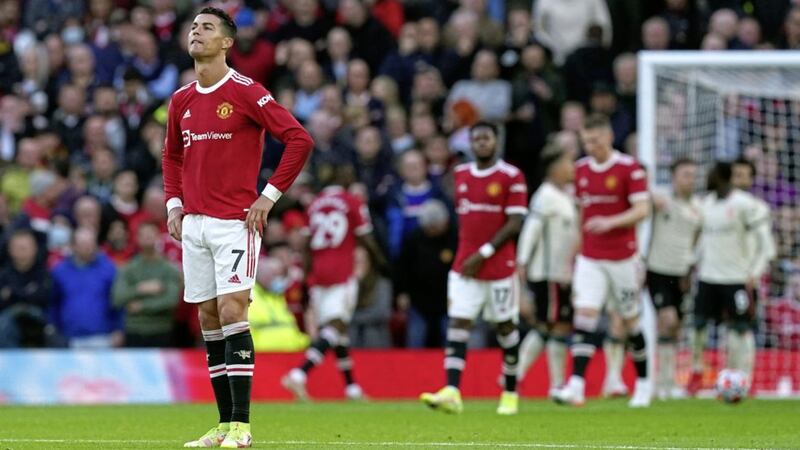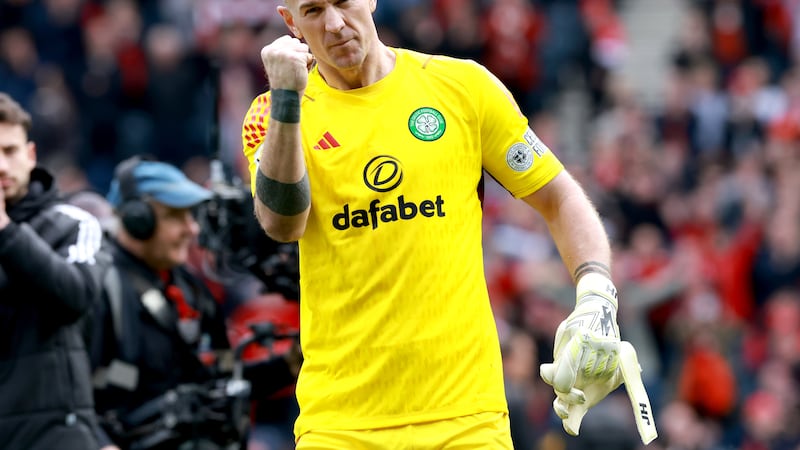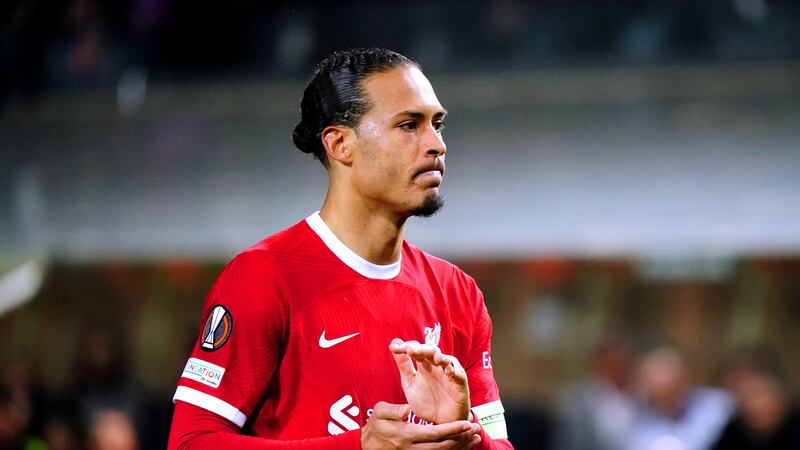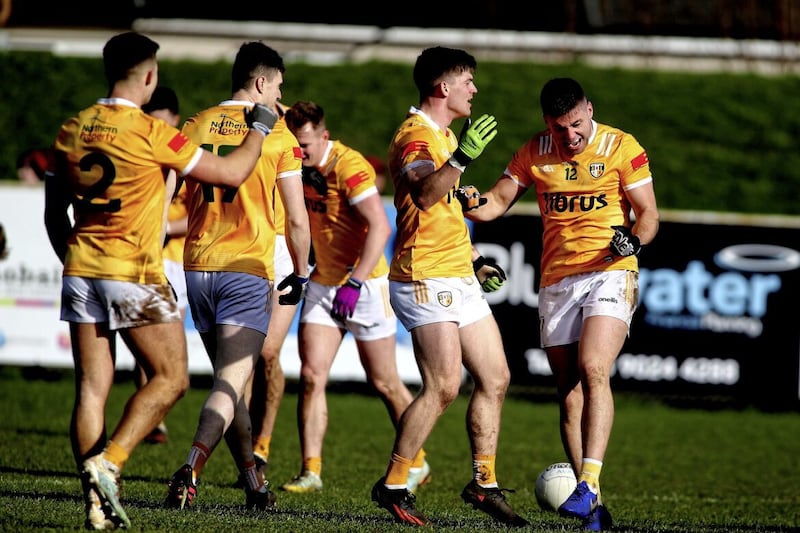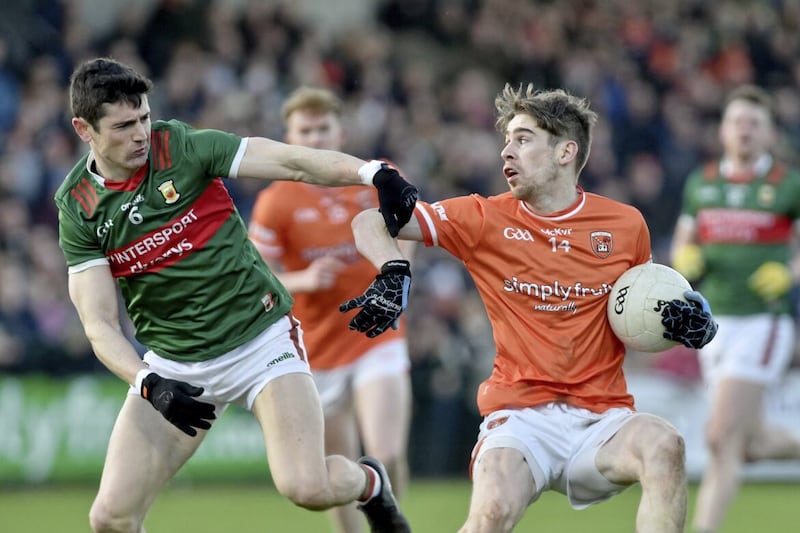REPUBLIC of Ireland versus Portugal, a heaving Aviva Stadium in the capital on a cool November night. The noise alone was a reminder in itself what living is supposed to feel like, post-lockdown.
There were probably a few reasons why you couldn’t buy a ticket for love nor money for what was effectively a dead rubber of a World Cup qualifier, at least from an Irish perspective.
A generous chunk of Ireland supporters flocked to Lansdowne Road to witness the next chapter of Stephen Kenny’s intriguing football revolution. Another chunk had eyes only for one of the all-time greats of the game: Cristiano Ronaldo.
From the first minute to the last, Ronaldo’s every touch or misplaced pass was jeered like a goal to the home side. And every time he was upended by the Irish team, which was a regular occurence, drew uproarious approval from the 50,000 fans.
In the opening seconds, Seamus Coleman rattled the great man’s ankles. Shane Duffy wrapped both hands around Ronaldo’s neck as they climbed for a high ball.
Soon after Duffy's man-handling, Matt Doherty barged into the unsuspecting Manchester United striker with a knee into his lower back that should really have been a penalty to the Portuguese.
From five floors up in the open-air press tribune, reporters have a spectacular bird’s eye view of the action below. It was fascinating to watch how both teams pressed each other’s restarts.
Ireland’s, if anything, was far more aggressive than Portugal’s. When Gavin Bazunu surveyed his short options, the visitors still feared the long ball clearance and therefore kept a couple of insurance policies in defence, whereas Ireland gambled everything and put at least two more players into ‘high press’ positions.
It was like a spider’s web – where the nervy Portuguese got tangled up on quite a number of occasions. Although they were crowned European champions in 2016, the current Portuguese team flatters to deceive. They masquerade as A-listers on the international stage but often play like imposters.
Despite the creeping years, Ronaldo remains their totem. Arguably the most impressive element of the game in Dublin, which ended in an entertaining scoreless draw, was Ronaldo.
To be still playing top-level football in the final third of the pitch at 36 is a stunning feat of physical endurance.
And for a man who Ireland, quite literally, tried to kick off the park, Ronaldo was easily the most dangerous attacker on the field.
He still has an impressive turn of pace and in the last quarter of the game – when 36-year-olds aren’t supposed to be on the field – Ronaldo managed to get himself into two fantastic goal-scoring positions.
Without exaggeration, he played more like a 29-year-old than a 36-year-old.
And so you flick over to Sky Sports on a sleepy ‘Super Sunday’ and Jamie Carragher is poking Roy Keane with a stick, and getting the desired reaction, after Ronaldo was dropped to the bench for the 1-1 draw between Chelsea and Manchester United.
It’s still difficult to understand the point of Carragher’s meandering 'Why-did-they-sign-Ronaldo' argument, and Keane indulging it.
The prevailing discourse of the day seems to be that Ronaldo has been a bad signing and therefore is part of the problem.
‘He can’t press’ has been the constant refrain. Ronaldo didn’t press when he was 19. He’s not going to start pressing at 36.
If a player doesn't press, does that render him irrelevant? A luxury even?
It seems the case when you consider the ever narrowing prism we view the modern game.
If only Manchester United could turn back the clock and clone Alan Smith three times, they would have three high pressers – and no finishers, no craft, no nuanced attacking approach. Just workhorses in the final third.
What’s unfolding in today’s game is the de-skilling of forward players and the significant up-skilling of defenders and goalkeepers, to such an extent you wonder why more managers don’t rotate some of their ball-playing defenders in midfield positions and therefore utilise the glaring versatility in front of them.
Blaming Ronaldo for United’s woes is a distraction from the fact that he’s playing in a team that doesn’t run very much. Or, more accurately, refuses to run very much.
Weirdly, it’s Ronaldo’s GPS stats that have come under greatest scrutiny – when his true worth to United was always going to be measured in the hard currency of goals in big games.
It was only weeks ago Ronaldo’s late winning goals were keeping Ole Gunnar Solskjaer in a job and was being cast as one of the few shafts of light in a dysfunctional, poorly coached team with a raft of average forward players.
Undoubtedly, Ronaldo’s work-rate can and must improve – just like every other United player who wants to impress new interim boss Ralf Rangnick.
But perspective is required here.
Everyone has become obsessed with the ‘high press’ and running power of players when the spotlight should be falling on the tactical misgivings of a team.
Even in his heyday, Andrea Pirlo couldn’t, or didn't, run very much but he still helped Juventus land four Italian league titles because he had hard runners – Claudio Marchisio and Arturo Vidal – either side of him.
And when Pogba played to his right side for a few seasons in Turin, the Frenchman never worked harder.
Juventus wouldn’t have won those titles without Pirlo. And they certainly wouldn’t have won them without Marchisio.
Football teams are about finding balance, finding the right skill set for different positions on the field of play.
There is no balance, no structure to Manchester United. Watching Ronaldo in the last throes of games for club and country this season has been instructive.
The hard sprints to get into goal-scoring positions in Dublin a few weeks ago and series of late interventions for United indicate that CR7 still has the physical capacity and supreme movement to be a relevant force for a few years to come.
Perhaps Ronaldo's demise has been greatly exaggerated.
